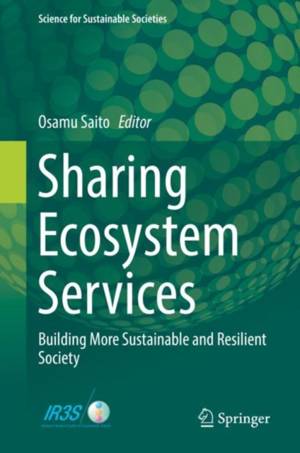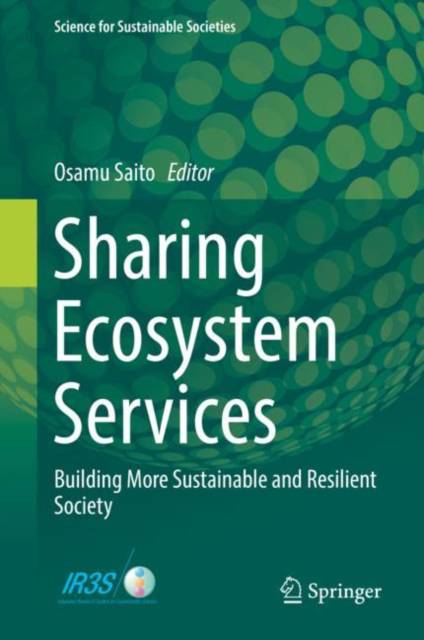
- Retrait gratuit dans votre magasin Club
- 7.000.000 titres dans notre catalogue
- Payer en toute sécurité
- Toujours un magasin près de chez vous
- Retrait gratuit dans votre magasin Club
- 7.000.0000 titres dans notre catalogue
- Payer en toute sécurité
- Toujours un magasin près de chez vous
Sharing Ecosystem Services
Building More Sustainable and Resilient Society
Description
Using "the sharing paradigm" as a guiding concept, this book demonstrates that "sharing" has much greater potential to make rural society resilient, sustainable and inclusive through enriching all four sharing dimensions: informal, mediated, communal and commercial sharing. The chapters are divided into two parts, one that focuses on case studies of the sharing ecosystem services in Japan, the other on case studies from around the world including in the regions of Africa, Asia-Pacific, South America and Europe. Reflecting the recent growing attention to sharing concept and its application to economic and urban context, this publication explores opportunities and challenges to build more resilient and sustainable society in harmony with nature by critical examination of sharing practices in rural landscapes and seascapes around the world. This book introduces not only traditional communal and non-market sharing practices in different rural areas, but also new forms of sharingthrough integration of traditional practices and modern science and technologies.
Spécifications
Parties prenantes
- Editeur:
Contenu
- Nombre de pages :
- 265
- Langue:
- Anglais
- Collection :
Caractéristiques
- EAN:
- 9789811380662
- Date de parution :
- 30-08-19
- Format:
- Livre relié
- Format numérique:
- Genaaid
- Dimensions :
- 168 mm x 239 mm
- Poids :
- 521 g

Les avis
Nous publions uniquement les avis qui respectent les conditions requises. Consultez nos conditions pour les avis.





